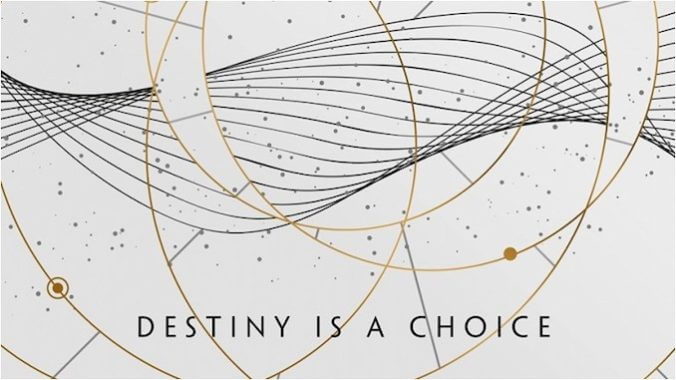The Atlas Paradox’s Slow Start Eventually Builds to a Riveting Ending

How do you follow up a viral phenomenon? That is, at least in part, the question we must ask of The Atlas Paradox, Olivie Blake’s highly anticipated sequel to the popular dark academia novel The Atlas Six, a self-published fantasy debut that went so viral it won a publishing deal and dominated social media publishing discussion for months. Perhaps there was no way that anything that came after those kinds of highs could ever hope equal them, particularly not the middle novel in a trilogy, which can’t give us the answers we’re so desperately seeking.
To be fair, The Atlas Paradox isn’t bad. Far from it, in fact. It’s a deeply philosophical, extremely nerdy exploration of ethics and morality that ticks a lot of the boxes about what the whole idea of the dark academia sub-genre is supposed to be and do in the first place. Blake’s prose remains gorgeous, and her characters are realistically messy, running the gamut from sympathetic disasters to offputtingly self-obsessed jerks. But the pace of this book is positively glacial at times, and it’s often a textbook example of middle story syndrome, occasionally struggling to clearly articulate the reason for its existence. Thankfully, the novel has a killer (excuse the sort of pun?) ending that more than proves worth the journey to reach it, though it’s likely some readers will be annoyed about how long it takes to get there.
This sequel to The Atlas Six picks up almost immediately where the first book left off. Libby Rhodes has been kidnapped by her time traveler ex-boyfriend Ezra and sent back to the past, providing a convenient loophole that allows the rest of the initiate class to survive without killing one of their number in order to remain part of the group. But as the remaining new members of the Alexandrian Society discover that joining a secret society isn’t exactly what they’d hoped—from the bizarre initiation ritual that requires them to publicly face up to their own weaknesses to the library archives that regularly withhold knowledge from them—they’ll have to figure out what exactly they’re willing to do with this new power they wield. (And possibly, whether they should have it at all.)
It feels important to note that without the propulsive murder competition scheme that drove much of The Atlas Six (and the first year of the new initiates’ time at the Society), this sequel initially struggles to find its purpose. While the search for Libby is ostensibly the animating principle of this part of the story, almost two-thirds of the novel is given over to what might politely be called navel-gazing, as the five remaining members wrestle much more personal concerns, from their shifting feelings toward one another and their plans for the future to big picture existential questions about power and morality.
Don’t get me wrong, if what you’re here for is the various relationships between and among this group of deeply broken human time bombs, you’ll find a lot to like here and the tension within the larger group is deftly handled. Telepath Parisa begins to discover she may actually be beginning to care about others despite her best efforts not to. Empath Callum develops a drinking problem which may or may not be related to the fact that he should probably be dead. Illusionist Tristan struggles to understand the breadth of his abilities, which may be able to rewrite reality itself. Physicist Nico spirals without the presence of his constant rival/partner Libby, and naturalist Reina begins to question whether or not she might actually be a god—and openly resent those that seem to take her (and her abilities) for granted. As for Libby, she’s trapped in 1989 and desperately seeking a way home—while asking herself how far she’s willing to go to find it.
-

-

-

-

-

-

-

-

-

-

-

-

-

-

-

-

-

-

-

-

-

-

-

-

-

-

-

-

-

-

-

-

-

-

-

-

-

-

-

-








































